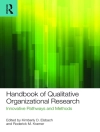of witnesses and on confessions, and the prevention of crime. In 1900, Alfred Binet, the French psychologist who developed the first standard- ized intelligence test, the Stanford-Binet, testified in court about the use of psychological tests with delinquents and criminals. These tests were later used in large scale for screening potential police as well as criminals and by World War II in the 1940’s, were used in many different ways to classify and design treatment for soldiers. In fact, the use of scientific psychometric tests has continued to be one of the strong assets the psychologist can bring to the law. In 1911, a Belgium psychologist, Varendonck testified that child witnesses did not have the mental capacity of adults and their testimony should not be admitted in courts. That same year, a German psychologist, Carl Marbe testified about proximate cause in a civil lawsuit. He described the psychological experiments used to determine that alcohol can have a negative impact on a person’s reaction time and subsequent behavior. In the United States the introduction of expert witness testimony took a similar route. In 1921 a case called, State v. Driver recognized that a psy- chologist could be an expert on juvenile delinquency, but the court rejected that psychologist’s testimony, anyhow. One of the first cases that set the standards of admitting all experts, including psychologists, called the Frye standard was decided in 1923.
David Shapiro & Lenore E.A. Walker
Introduction to Forensic Psychology [PDF ebook]
Clinical and Social Psychological Perspectives
Introduction to Forensic Psychology [PDF ebook]
Clinical and Social Psychological Perspectives
Buy this ebook and get 1 more FREE!
Language English ● Format PDF ● ISBN 9781475737950 ● Publisher Springer US ● Published 2013 ● Downloadable 3 times ● Currency EUR ● ID 4662966 ● Copy protection Adobe DRM
Requires a DRM capable ebook reader












